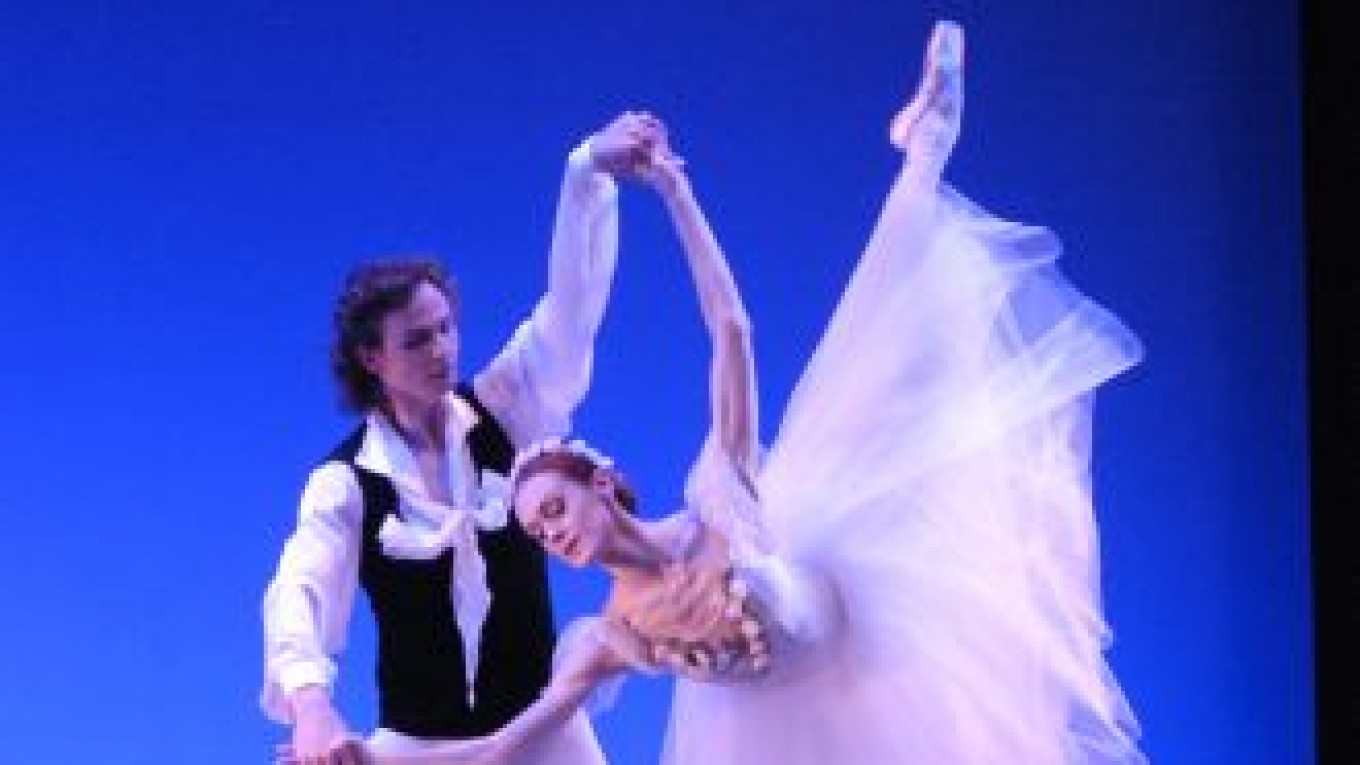In the late 1960s, three now-legendary figures in the world of Russian dance, ballerinas Galina Ulanova and Olga Lepeshinskaya and choreographer Igor Moiseyev, banded together in Moscow to found a competition for young dancers. Called simply the International Competition for Artists of the Ballet, the event was first held in 1969, and among its first gold-medalists were Mikhail Baryshnikov and long-time Paris Opera Ballet premier danseur and choreographer Patrice Bart.
The competition has since been held every four years, with former Bolshoi Theater ballet artistic director Yury Grigorovich taking over from Ulanova as chairman of the jury in 1973 and acting as its guiding light ever since. In 2005, the competition added a contest for choreographers.
This year, the 12th competition began on June 11 and ended eight days later, bringing together on the two stages of the Bolshoi Theater some 129 dancers representing 25 countries. As in the past, Russian dance academies and ballet troupes supplied the largest national contingent, 42 in all, but there were also sizable numbers from elsewhere: 16 from Japan, 15 from Ukraine, eight each from Brazil and the United States and seven from Kazakhstan. The only truly underrepresented region of the world was Western Europe, with just four contestants from Germany and one apiece from Italy and Switzerland.
For purposes of the competition, the dancers were divided into two groups — juniors, age 14 to 19, and seniors, age 19 to 26 — with part of each group competing in solo numbers and part in duets.
The competition's jury was made up, in addition to Grigorovich, of prima ballerinas Svetlana Zakharova from the Bolshoi; Ulyana Lopatkina from the Mariinsky Theater; former Bolshoi prima ballerina Lyudmila Semenyaka; Moscow Choreographic Academy rector Marina Leonova; and ten distinguished choreographers, ballet company directors and dance teachers; together with one active dancer from ten countries other than Russia. With an exception or two, their choice of medal recipients struck me as fair and reasonable, though some observers, including myself, raised an eyebrow or two at no less than five medals going to past and present pupils of jury member Leonova.
Russians proved dominant in the senior group, taking 10 out of the 13 medals awarded and all three special prizes. It was an altogether different story with the junior group. There, Russians succeeded in capturing only two of the 14 medals. Three of the remaining dozen went to contestants from the United States, two to contestants from China and the rest to representatives of Italy, Japan, Latvia and Switzerland. The one special prize for juniors was taken by a pair of dancers from Brazil.
The first two of the competition's three rounds — a total of eight three-and-a-half-hour sessions, each consisting of an unbroken and repetitious string of solo variations and duets from classical ballets — proved something of a chore to watch. On top of that came a marathon late-night session in which each of the second-round competitors danced an obligatory snippet of modern choreography.
The two sessions of the day-long third round, however, generated some real excitement, with the 40 dancers selected to take part (17 from the juniors, 23 from the seniors) all presumably considering themselves within striking distance of a medal and its monetary reward ($10,000 for a gold, $7,000 for a silver and $5,000 for a bronze to the seniors; $6,000 for a gold, $5,000 for a silver and $4,000 to the juniors).
Most impressive to me were the two male gold-medalists in the senior group — David Zaleyev, 23, from the Tatar Theater of Opera and Ballet in his native Kazan, who took the prize in solo, a particularly elegant dancer with astounding jumps and beautifully executed turns, and Azerbaijani Timur Askerov, also 23, from the Mariinsky Theater, who took the prize in duet, a strong performer, possessing virtuosity of a sort that calls to mind the Bolshoi's sadly departed Ivan Vasilyev.
The senior group's female side received no gold medal in solo, while its gold-medalist in duet, Oksana Bondareva, 26, from St. Petersburg's Mikhailovsky Theater, seemed merely good, not outstanding.
It was quite the opposite with the juniors: the boys, apart from the very fine gold-medalist in solo, 19-year-old Latvian Timofejs Andrijasenko, made little impression, while the girls displayed a great deal of very promising talent. Among the latter, I can't say I remember much of the gold-medalist in duet, Ksenia Rizhkova, 19, whose performance in the pas de deux from "Don Quixote" ended up blurred in my mind among the nine other performances of the same piece during the third round. But among the rest, I do recall with particular pleasure the beautiful dancing by co-gold-medalist in solo, Swiss Miko Fogarty, 16, in excerpts from "Giselle" and "Esmeralda," and the technically assured and amazingly mature performance by 14-year-old American co-silver-medalist in solo, Gisele Bethea, of excerpts from "Raymonda" and, yet again, "Esmeralda."
Contact the author at artsreporter@imedia.ru
A Message from The Moscow Times:
Dear readers,
We are facing unprecedented challenges. Russia's Prosecutor General's Office has designated The Moscow Times as an "undesirable" organization, criminalizing our work and putting our staff at risk of prosecution. This follows our earlier unjust labeling as a "foreign agent."
These actions are direct attempts to silence independent journalism in Russia. The authorities claim our work "discredits the decisions of the Russian leadership." We see things differently: we strive to provide accurate, unbiased reporting on Russia.
We, the journalists of The Moscow Times, refuse to be silenced. But to continue our work, we need your help.
Your support, no matter how small, makes a world of difference. If you can, please support us monthly starting from just $2. It's quick to set up, and every contribution makes a significant impact.
By supporting The Moscow Times, you're defending open, independent journalism in the face of repression. Thank you for standing with us.
Remind me later.


